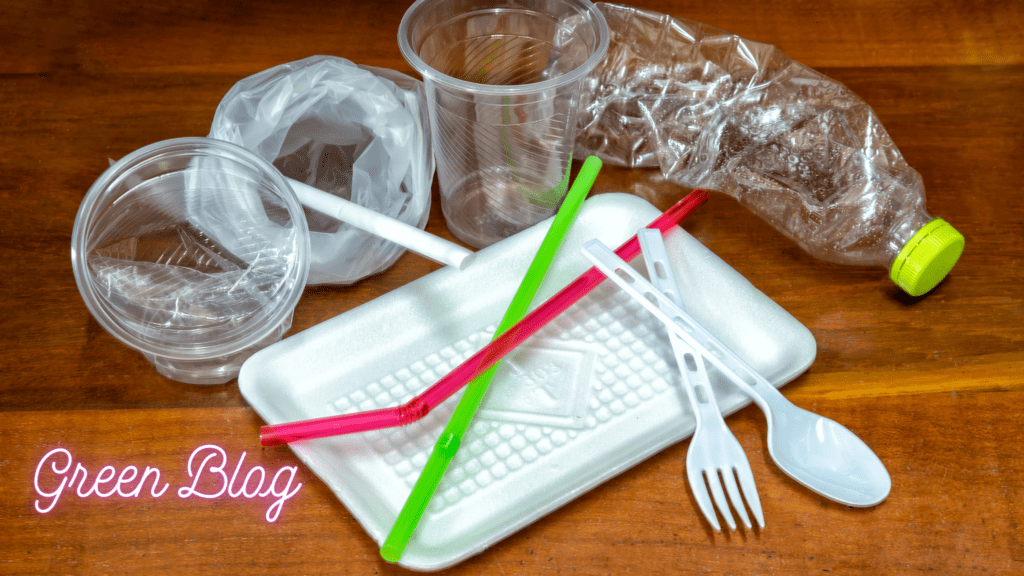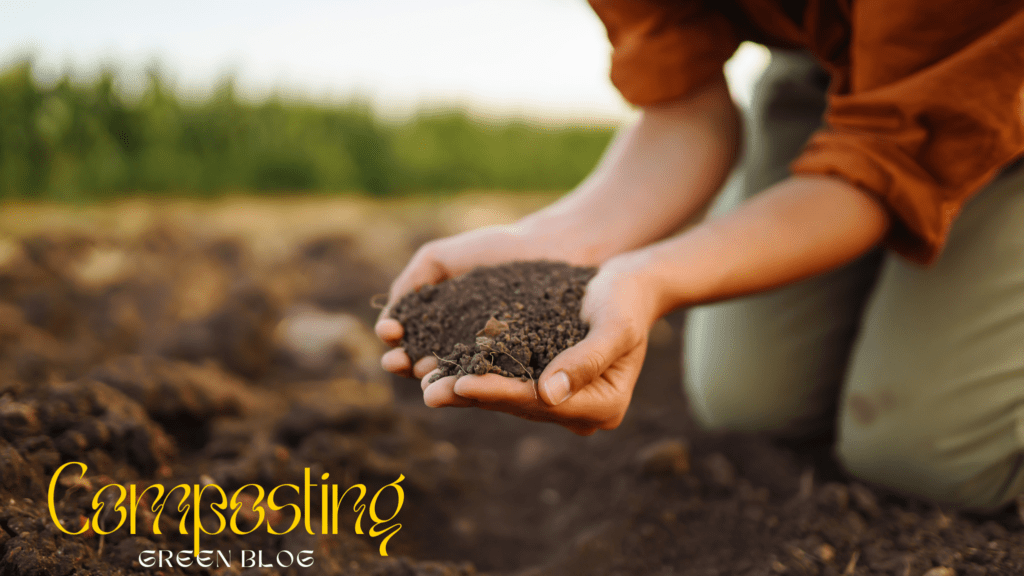Introduction
As humans, we have a responsibility to care for the planet that gives us life. However, our daily choices and actions often have a negative impact on the environment. One of the most significant contributors to this problem is the staggering amount of waste we produce. From plastic packaging to synthetic materials, our trash is polluting our oceans, land, and air. But there is hope. Biodegradable products offer a sustainable solution to reducing waste and pollution and have numerous benefits for the environment and human health.
The term “biodegradable” refers to the ability of a material to break down naturally in the environment. This means that biodegradable products can easily decompose and return to the earth, leaving behind minimal to no waste. In contrast, non-biodegradable materials like plastic can take hundreds of years to decompose and often harm the environment in the process.
The benefits of biodegradable products are numerous. Not only do they reduce waste and pollution, but they also conserve natural resources, decrease greenhouse gas emissions, support sustainable agriculture, and improve human health. By choosing biodegradable products, we can significantly reduce our carbon footprint and contribute to a more sustainable future.
In this blog post, we will explore the benefits of biodegradable products in more detail. We will discuss what biodegradable products are, their advantages, and examples of how they are being used in different industries. We will also address some of the challenges and limitations of biodegradable products and provide guidance on how to incorporate them into your daily life.
By the end of this post, you will have a better understanding of the importance of biodegradable products and how they can help us return to a more natural and sustainable way of living. So let’s dive in and explore the benefits of biodegradable products together!
What are Biodegradable Products?
Biodegradable products are materials that can break down naturally in the environment, typically within a few weeks or months, without causing harm to the ecosystem. These products are made from organic matter such as plants, animals, or microorganisms, and are designed to decompose easily, returning to nature without leaving behind harmful residues.
Biodegradable products can be made from a variety of natural materials, including:
- Plant-based materials such as corn starch, sugarcane, or potato starch
- Animal-derived materials such as gelatin or collagen
- Microbial materials such as bacteria or fungi
- Natural polymers such as cellulose, chitin, or alginate
Some common examples of biodegradable products include:
- Compostable packaging materials such as bags, containers, and cutlery
- Natural soaps and cleaning products
- Bioplastics made from renewable resources such as corn starch or sugarcane
- Biodegradable textiles such as clothing, upholstery, and carpets
- Compostable disposable cups and plates
How do Biodegradable Products Work?
Biodegradable products work by breaking down naturally in the environment through a process called biodegradation. This process involves the action of microorganisms such as bacteria, fungi, or yeast, which feed on the organic matter and convert it into carbon dioxide, water, and biomass.
The biodegradation process occurs in several stages:
- Fragmentation: The material breaks down into smaller pieces, making it easier for microorganisms to access.
- Hydrolysis: Water breaks down the material into simpler molecules, making it easier for microorganisms to digest.
- Microbial growth: Microorganisms feed on the broken-down material, multiplying and producing enzymes that further break down the material.
- Mineralization: The material is converted into carbon dioxide, water, and biomass, which can be absorbed by plants and microorganisms.
Benefits of Biodegradable Products
Biodegradable products offer numerous benefits, including:
- Reduced waste and pollution: Biodegradable products can reduce the amount of waste sent to landfills and oceans.
- Conservation of natural resources: Biodegradable products can be made from renewable resources, reducing the need for non-renewable materials.
- Decreased greenhouse gas emissions: Biodegradable products can reduce the amount of carbon dioxide released into the atmosphere.
- Support for sustainable agriculture: Biodegradable products can be made from agricultural waste, supporting sustainable agriculture practices.
- Improved human health: Biodegradable products can reduce exposure to harmful chemicals and toxins.
In the next section, we will explore the advantages of biodegradable products in more detail, and provide examples of how they are being used in different industries.
Advantages of Biodegradable Products
Biodegradable products offer numerous advantages over traditional non-biodegradable materials. Some of the key benefits include:
Reduced Waste and Pollution

Biodegradable products can significantly reduce the amount of waste sent to landfills and oceans. According to the United Nations, if current trends continue, the world’s oceans are expected to contain more plastic than fish by 2050. Biodegradable products can help mitigate this problem by breaking down naturally in the environment, reducing the amount of plastic waste that ends up in our oceans and landfills.
Conservation of Natural Resources
Biodegradable products can be made from renewable resources such as corn starch, sugarcane, or potato starch, reducing the need for non-renewable materials like petroleum. This can help conserve natural resources for future generations and reduce our reliance on fossil fuels.
Decreased Greenhouse Gas Emissions
Biodegradable products can reduce the amount of carbon dioxide released into the atmosphere, which contributes to climate change. By using renewable resources and reducing waste, biodegradable products can help mitigate the impact of climate change.
Support for Sustainable Agriculture
Biodegradable products can be made from agricultural waste, supporting sustainable agriculture practices. This can help reduce the environmental impact of agriculture and promote more sustainable farming practices.
Improved Human Health
Biodegradable products can reduce exposure to harmful chemicals and toxins. Many traditional non-biodegradable materials contain harmful chemicals like BPA, phthalates, and PFAS, which have been linked to various health problems. Biodegradable products can provide a safer alternative.
Economic Benefits
Biodegradable products can also offer economic benefits. By reducing waste and pollution, biodegradable products can help save companies and governments money on waste management and cleanup costs. Additionally, biodegradable products can create new job opportunities in the sustainable agriculture and renewable energy sectors.
Examples of Biodegradable Products in Action
Biodegradable products are being used in a variety of industries, including:
- Packaging: Biodegradable packaging materials like compostable bags and containers are being used by companies like EcoCycle and BioMass Packaging.
- Textiles: Biodegradable textiles like clothing, upholstery, and carpets are being made from materials like bamboo, hemp, and organic cotton.
- Disposable cups and plates: Biodegradable disposable cups and plates are being made from materials like corn starch and sugarcane.
- Agriculture: Biodegradable mulch films and soil covers are being used in sustainable agriculture practices.
In the next section, we will explore some of the challenges and limitations of biodegradable products, and provide guidance on how to incorporate them into your daily life.
Challenges and Limitations of Biodegradable Products
While biodegradable products offer numerous benefits, there are also some challenges and limitations to consider.
Infrastructure
One of the biggest challenges facing biodegradable products is the lack of infrastructure for composting and recycling. In many areas, there are limited facilities for processing biodegradable materials, making it difficult for consumers to properly dispose of them.
Cost
Biodegradable products can be more expensive than traditional non-biodegradable materials, making them less accessible to some consumers.
Performance
Biodegradable products may not perform as well as traditional materials in certain applications. For example, biodegradable plastics may not be as strong or durable as traditional plastics.
Contamination
Biodegradable products can be contaminated with non-biodegradable materials, making them unsuitable for composting or recycling.

Labeling and Certification
There is currently no standardized labeling or certification process for biodegradable products, making it difficult for consumers to know whether a product is truly biodegradable.
Consumer Education
Many consumers are not aware of the benefits and limitations of biodegradable products, making it difficult to encourage widespread adoption.
Scalability
Biodegradable products may not be scalable for large-scale industrial applications, making them less viable for widespread use.
Regulations
There is a need for clearer regulations and standards for biodegradable products to ensure consistency and quality.
Public Perception
There may be a lack of public understanding and acceptance of biodegradable products, making it difficult to encourage widespread adoption.
Technological Limitations
There are still technological limitations to overcome in terms of producing biodegradable materials that meet performance and cost requirements.
Supply Chain
There may be challenges in sourcing biodegradable materials and managing the supply chain.
End-of-Life
There may be challenges in managing the end-of-life cycle of biodegradable products, including disposal and recycling.
Despite these challenges and limitations, biodegradable products offer a promising solution to reducing waste and pollution. By understanding the challenges and limitations, we can work towards addressing them and promoting the adoption of biodegradable products.
Biodegradable products offer a sustainable solution to reducing waste and pollution. While there are challenges and limitations to consider, the benefits of biodegradable products make them an important part of a sustainable future. By understanding the advantages and limitations of biodegradable products, we can work towards creating a more sustainable world for future generations.
Incorporating Biodegradable Products into Your Daily Life
Now that we’ve explored the benefits and challenges of biodegradable products, let’s discuss how to incorporate them into your daily life. Making small changes to your daily habits can have a significant impact on the environment, and biodegradable products can be a great place to start.
Start with the Basics
Begin by replacing traditional plastics with biodegradable alternatives in your daily life. For example:
- Use biodegradable bags for grocery shopping and other purchases
- Choose biodegradable packaging materials for food and other products
- Opt for biodegradable disposable cups and plates instead of traditional plastics
Explore Biodegradable Textiles
Biodegradable textiles are a great alternative to traditional synthetic materials. Consider:
- Wearing clothing made from biodegradable materials like bamboo, hemp, or organic cotton
- Using biodegradable upholstery and carpets in your home
- Choosing biodegradable bedding and towels
Make Sustainable Choices in the Kitchen
The kitchen is a great place to start making sustainable changes. Try:
- Using biodegradable mulch films and soil covers in your garden
- Choosing biodegradable disposable cutlery and plates for outdoor events or picnics
- Opting for biodegradable food packaging materials
Get Creative with Biodegradable Products
Think outside the box and get creative with biodegradable products! For example:
- Use biodegradable materials for crafting and DIY projects
- Create biodegradable planters and garden decorations
- Make biodegradable gift wrapping paper and cards
Support Companies that Use Biodegradable Products
Supporting companies that use biodegradable products is a great way to promote sustainability. Look for companies that:
- Use biodegradable packaging materials
- Offer biodegradable products and alternatives
- Prioritize sustainability in their business practices
Educate Yourself and Others
Education is key to promoting sustainability and biodegradable products. Take the time to:
- Learn more about biodegradable products and their benefits
- Share your knowledge with friends and family
- Encourage others to make sustainable choices
Make a Difference
Remember, every small change you make can have a significant impact on the environment. By incorporating biodegradable products into your daily life, you’re contributing to a more sustainable future. So, start making changes today and inspire others to do the same!
By following these tips and incorporating biodegradable products into your daily life, you can make a positive impact on the environment and promote sustainability. Remember, every small change counts, and collective action can lead to significant positive change.
Conclusion
In conclusion, biodegradable products offer a sustainable solution to reducing waste and pollution. By understanding the benefits and limitations of biodegradable products, we can work towards creating a more sustainable future. Incorporating biodegradable products into our daily lives can have a significant impact on the environment, and it’s easier than ever to make the switch.
The Future of Biodegradable Products
The future of biodegradable products looks promising. As technology continues to advance, we can expect to see even more innovative and effective biodegradable materials. Companies are already investing in research and development, and governments are implementing policies to support the use of biodegradable products.
The Role of Governments and Companies
Governments and companies have a crucial role to play in promoting the use of biodegradable products. By implementing policies and practices that support sustainability, they can help drive change and encourage others to follow suit. This can include offering incentives for companies that use biodegradable materials, implementing recycling programs, and educating the public about the benefits of biodegradable products.
The Power of Individual Action
Individual action is also crucial in promoting the use of biodegradable products. By making conscious choices in our daily lives, we can help drive demand for sustainable products and encourage companies to adopt more sustainable practices. Whether it’s choosing biodegradable packaging, using public transport, or supporting companies that prioritize sustainability, every small action counts.
A Call to Action
So, what can you do to make a difference? Start by incorporating biodegradable products into your daily life, and encourage others to do the same. Support companies that prioritize sustainability, and advocate for policies that support the use of biodegradable materials. Together, we can create a more sustainable future and reduce our impact on the environment.
Final Thoughts
Biodegradable products offer a sustainable solution to reducing waste and pollution. By understanding the benefits and limitations of biodegradable products, we can work towards creating a more sustainable future. Incorporating biodegradable products into our daily lives can have a significant impact on the environment, and it’s easier than ever to make the switch. Let’s work together to create a better future for ourselves and for generations to come.
More Reading
- Sustainability
- Consumerism
- Environmental impact
- Climate change
- Pollution
- Waste management
- Resource depletion
- Social responsibility
- Ethical consumption
- Eco-friendly living
- Green lifestyle
- Environmental stewardship
- Sustainable development
- Social justice
- Economic inequality
- Environmental health
- Human well-being
- Natural resources
- Conservation
- Renewable energy
Explore Micro2media.com
- Sustainable Sustenance: How Organic Foods Can Save Our Planet
- Listening to the Land: Invasive Plants Disrupt Ecosystem Soundscapes
- Hydrate and Thrive: Unlocking the Power of Cucumber for Wellness
- Unlocking the Skin-Boosting Benefits of Shea Butter: A Comprehensive Guide
- Unlocking the Secrets of Shopping Addiction: A Deep Dive into the Psychometric Properties of the Bergen Shopping Addiction Scale
- Green Choices Go High-Tech: How Eco-Friendly Products are Shaping the Future with ICT Innovation
- Greening Up Your Routine: A Guide to Eco-Friendly Products
- Harnessing the Potential of Legumes: From Nutritional Riches to Sustainable Solutions
- Cracking the Code: Unveiling the Pros and Cons of Egg Consumption
- Think Green, Thrift Chic: Sustainable Style on a Budget
- Okra: The Green Superfood for Your Body and Soul!
- Peanut Butter Smackdown: Organic vs. Natural – Who Wins?
- Mango Mischief or Mango Magic? Separating Fact from Fiction
- From Studio to Sustainable Flow: Eco-Friendly Yoga with the FANGCAN PVC Yoga Mat
- How to Live Sustainably at Home: 10 Easy Tips for a Greener Lifestyle
- Intermittent Fasting: Fact vs. Fad – A Science-Based Breakdown
- The Atlantic Diet May Shrink Belly Fat and Lower Cholesterol
- 99% Aloe Vera Gel – The Multipurpose Skin Savior
- EcoGreen – Eco-friendliness at its peak! All Over Printing Car Cup
- Fisherman’s Hat: Micro2media
